Swarms of locusts to become chicken feed
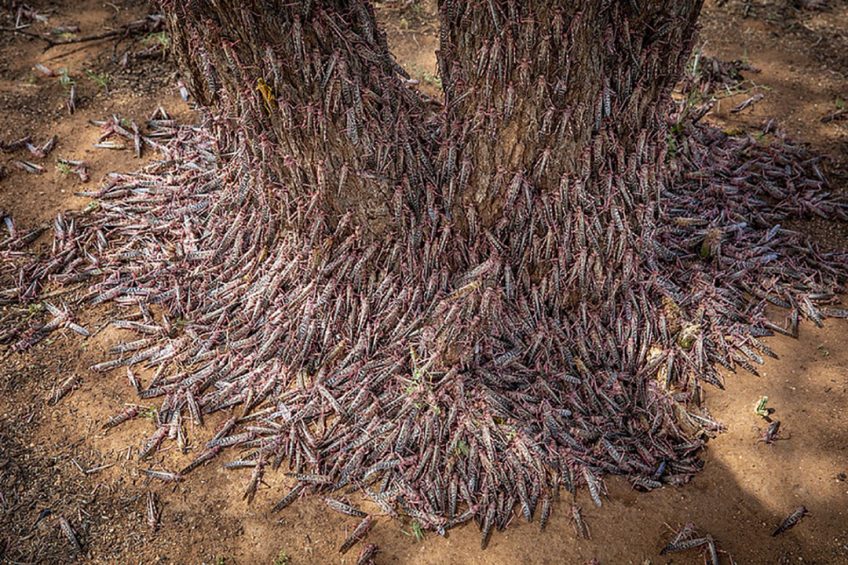
Enormous swarms of locusts – about 60 million insects – have caused major devastation to crops and livelihoods in countries in East Africa, Asia and the Middle East. Scientists in Pakistan have come up with a way to turn these critters into chicken feed.
Despite control operations, the recent heavy rains have created the ideal conditions for the pest’s reproduction in several countries. Young juveniles will become voracious adults as farmers begin to harvest, compounding an already bleak food security situation. “The locusts, combined with the impacts of Covid-19, could have catastrophic consequences on livelihoods and food security,” says director-general of the Food and Agriculture Organization of the United Nations (FAO), QU Dongyu, adding, “Our gains have been significant, but the battle is long and is spreading to new areas.”
The locusts, combined with the impacts of Covid-19, could have catastrophic consequences on livelihoods and food security.” – FAO
A simple but clever solution
Muhammad Khurshid, a civil servant in the Ministry of National Food Security and Research, together with Johar Ali, a biotechnologist from the Pakistan Agricultural Research Council, came up with an innovative pilot project which encourages farmers to trap the locusts that are then turned into chicken feed.
 New Proteins: Insects
New Proteins: Insects
The popularity of insect meal as a new protein has taken off – find out about new developments, regulations and innovations.
Catch locusts. Earn money. Save crops
They identified Pakistan’s Okara district as the most suitable area to carry out a 3-day pilot project due to it being heavily populated and where the locusts were less likely to be contaminated by insecticides. Using the slogan, “Catch locusts. Earn money. Save crops”, the project offered to pay farmers 20 Pakistani rupees (US$ 0.12) per kg of locusts caught, reports The Third Pole. Locusts only fly in daylight. During the night they cluster on trees and on the open ground in sandy areas where they remain almost motionless until dawn.
If we can capture the locusts without spraying on them, their biological value is high and they have good potential for use in fish, poultry and even dairy feed.”
7 tonnes of locusts per night
The community catches an average of 7 tonnes of locusts a night, which are weighed and sold to nearby chicken feed plants. Farmers earned up to 20,000 Pakistani rupees (US$ 125) each for one night’s work. The Third Pole adds that Muhammad Athar, GM of Hi-Tech Feeds, says his firm fed the locust feed to its broiler chickens in a 5-week study: “All nutritional aspects came out positive. If we can capture the locusts without spraying on them, their biological value is high and they have good potential for use in fish, poultry and even dairy feed,” he said.
 Chickens prefer eating insect larvae meal
Chickens prefer eating insect larvae meal
The use of insects as an alternative ingredient in the poultry feed industry is a promising solution to optimise animal production. A study set out to determine if broilers displayed a preference for Tenebrio molitor mealworm.
Locusts contain more protein than soy
“We currently import 300,000 tonnes of soybean and after extracting the oil for sale, we use the soya bean crush to use in animal feed. Soybean has 45% protein whereas locusts have 70% protein. Soybean meal is 90 Pakistani rupees per kg (US$ 0.5), whereas locusts are free – the only cost is capturing them and drying them,” says Athar. The most challenging part of this project, says Ali, is confirming if the locusts are free of pesticides, which is not suitable for feeding. The most exciting part, he says, is seeing people earn money. Despite interest from large-scale commercial operators, scaling up the project had to be put on hold due to the coronavirus pandemic. The lockdown is easing in Pakistan and so they can start again. All that is needed is for the local community to collect the locusts and sell them.
 Beheer
Beheer

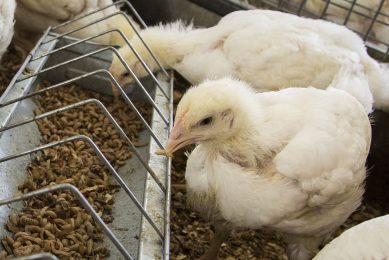
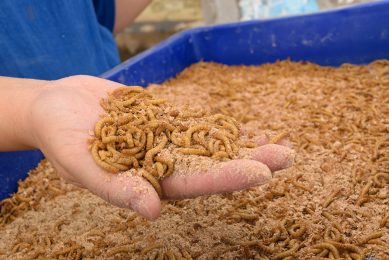
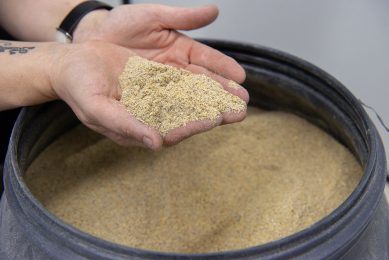
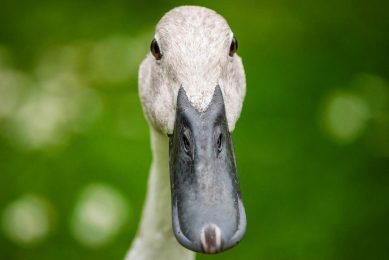



 WP Admin
WP Admin  Bewerk bericht
Bewerk bericht